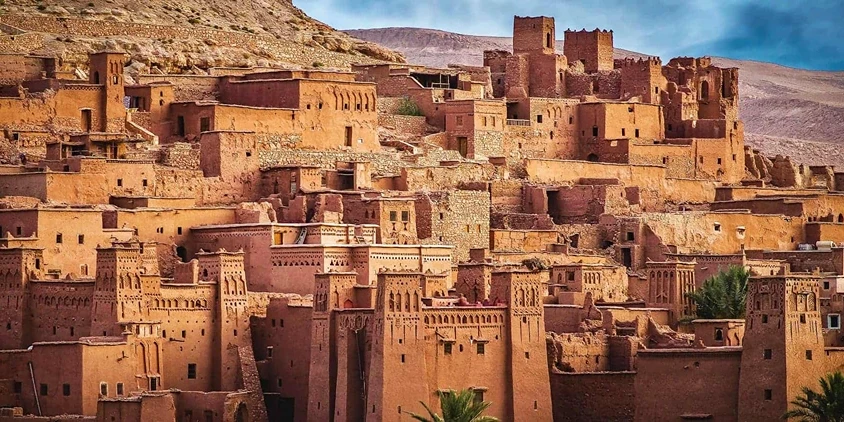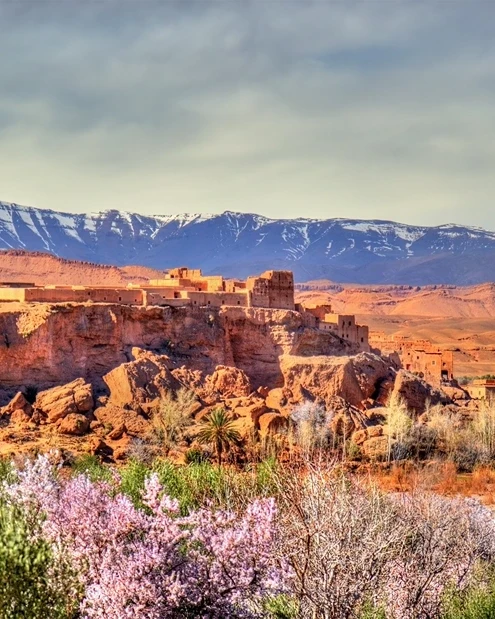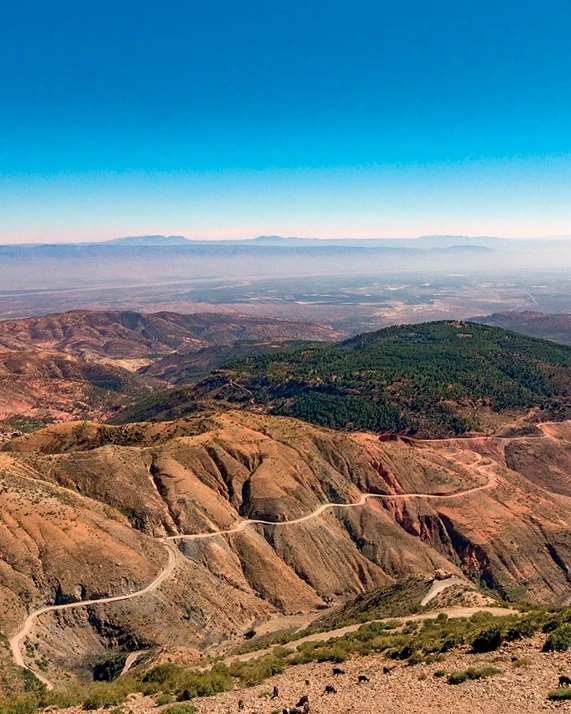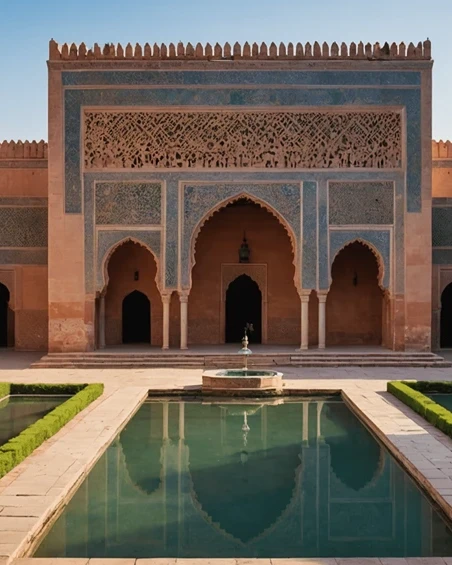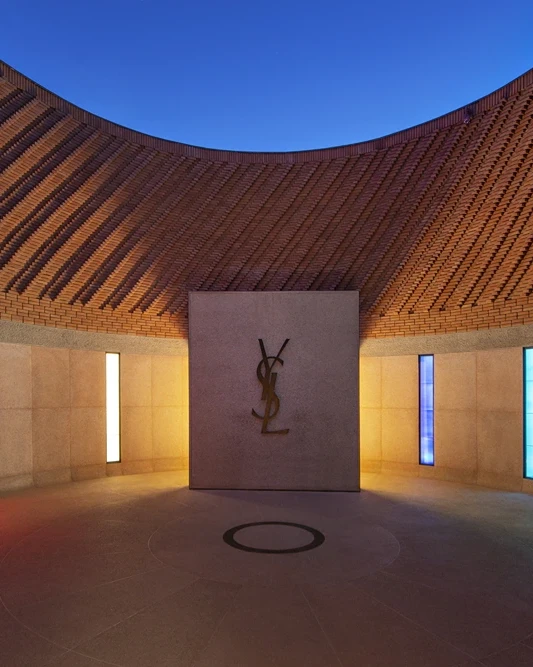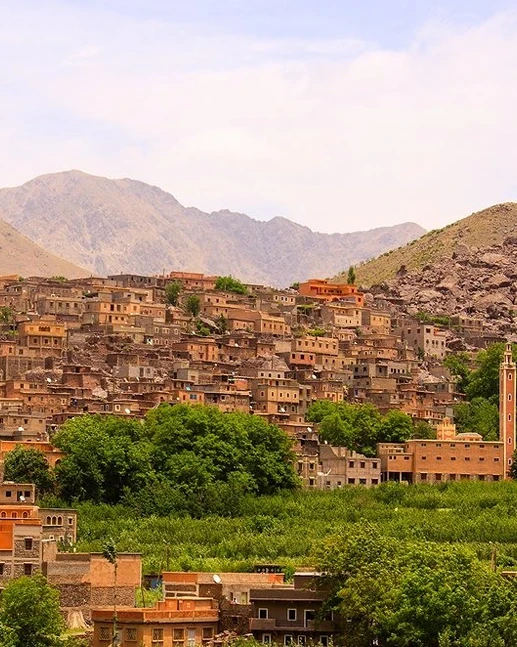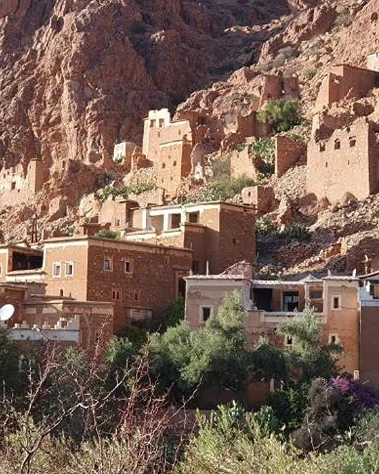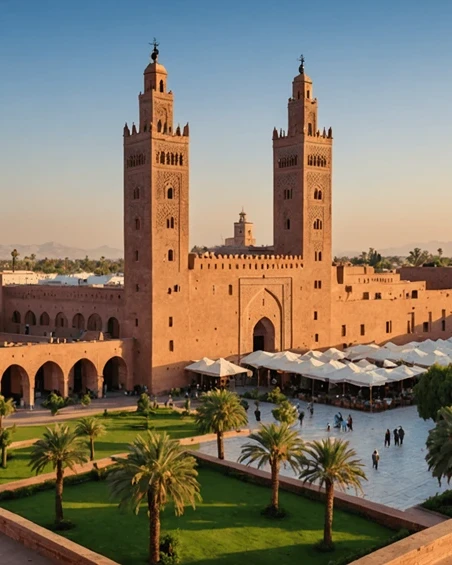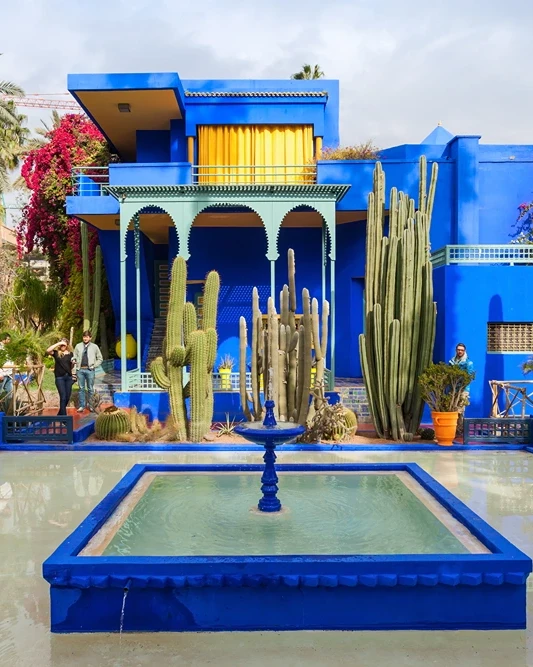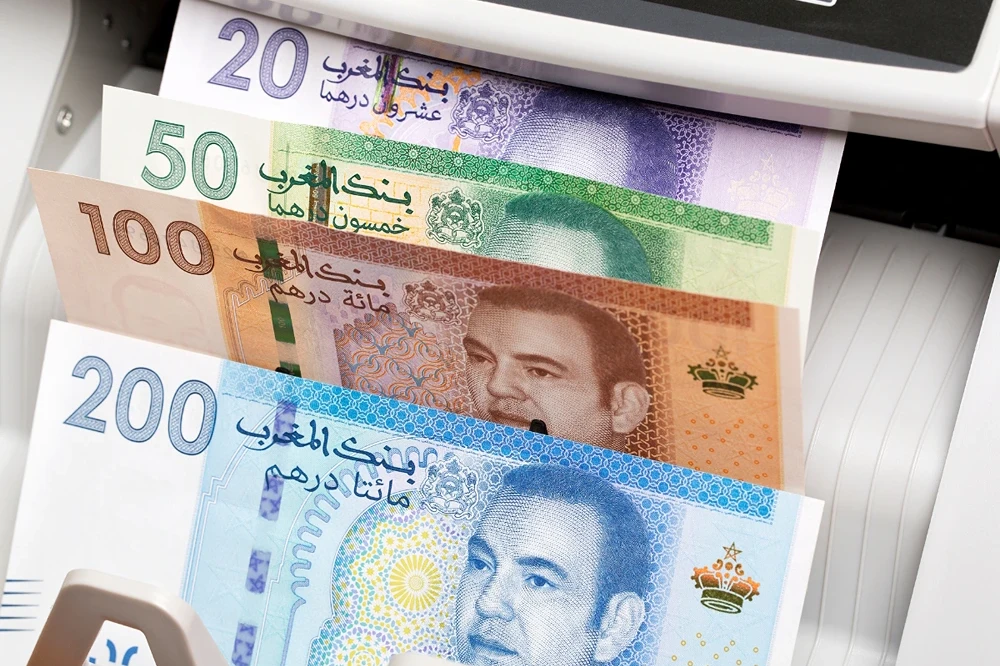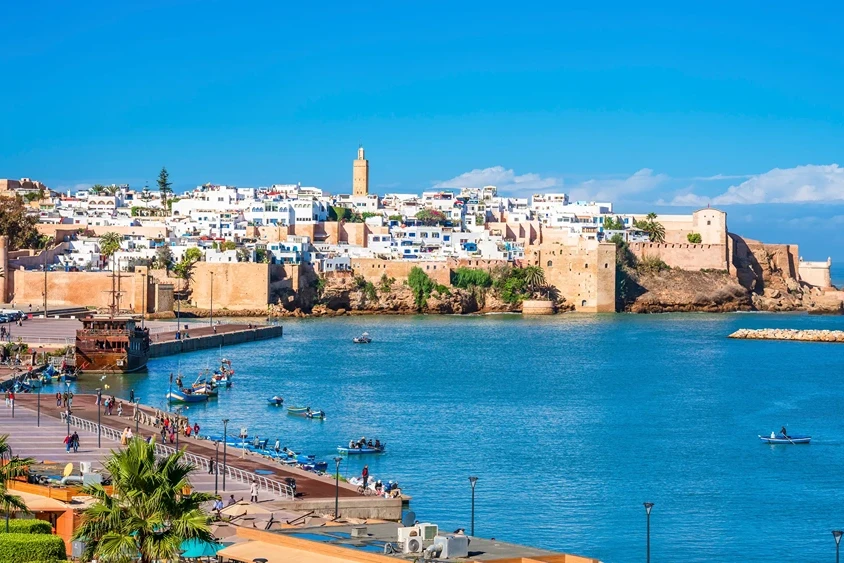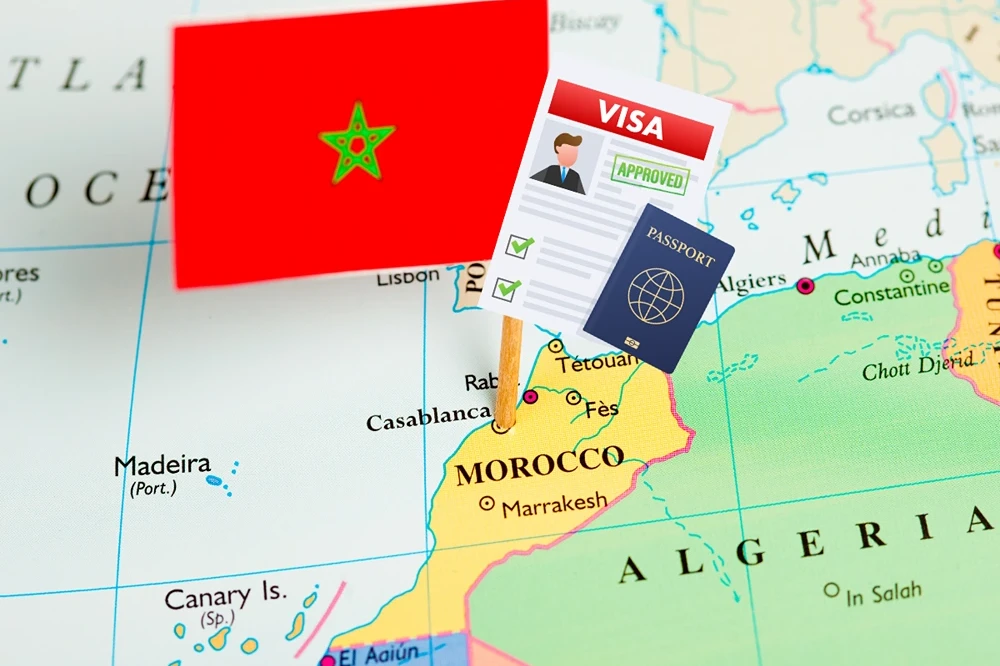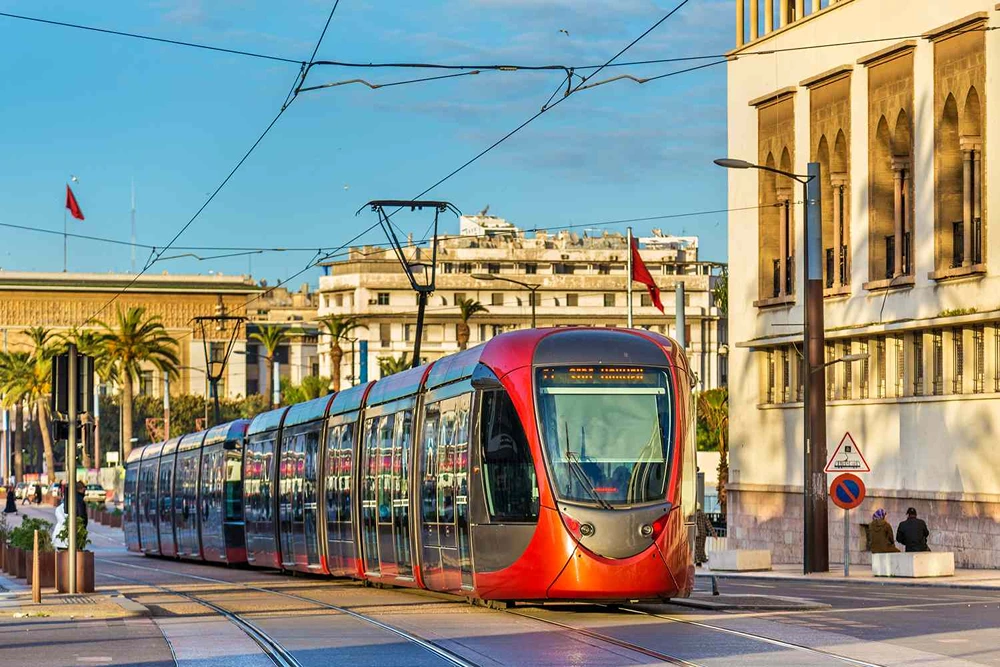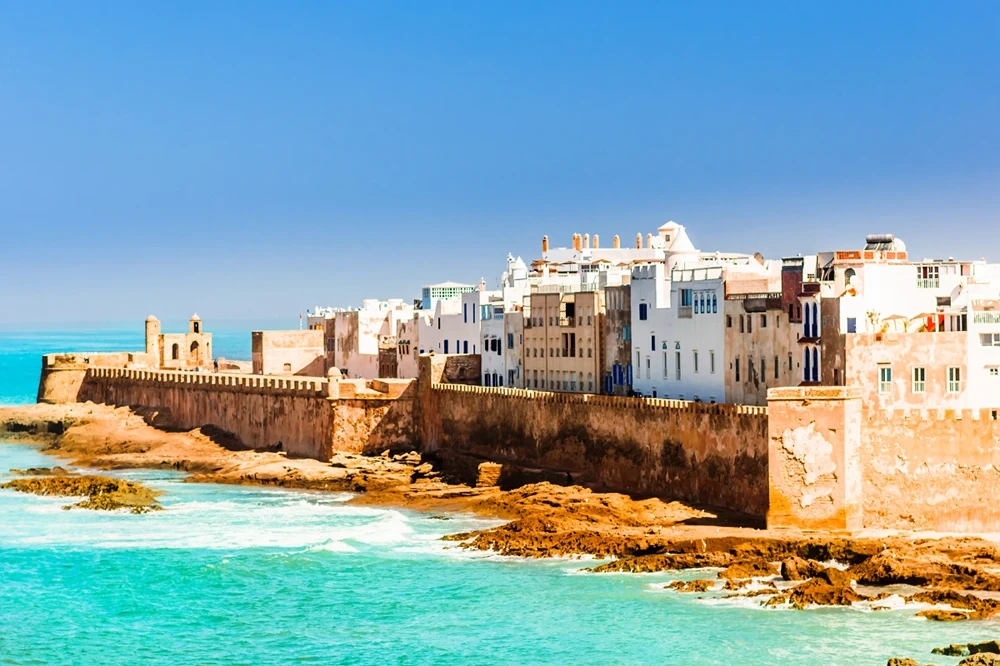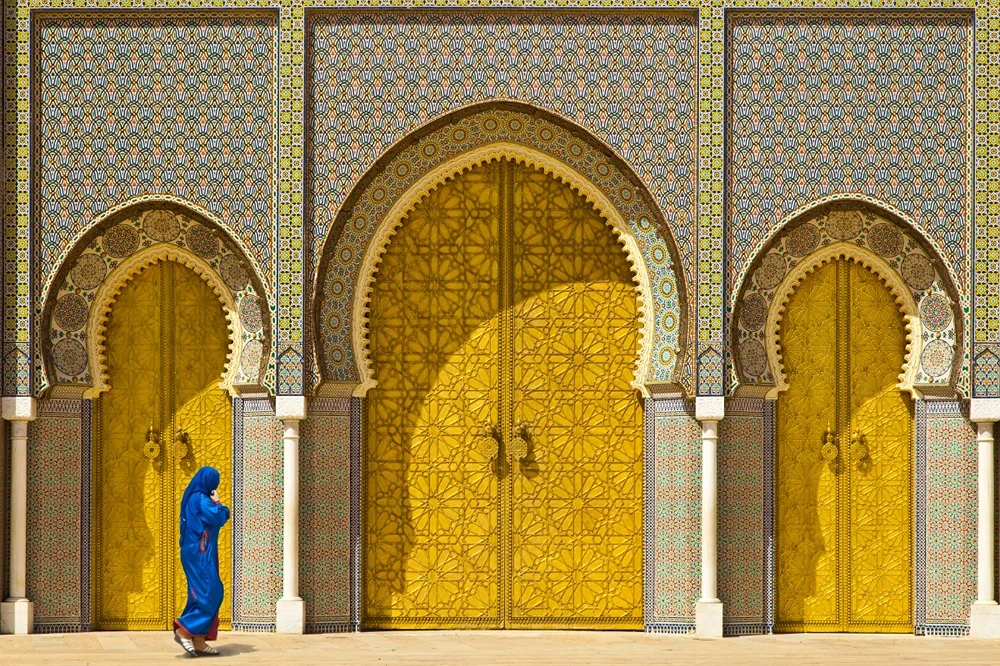Travel Resources
Prepare for your journey to Morocco with these essential resources:
- Flights: Casablanca Mohammed V International Airport (CMN) is the main gateway. Use flight comparison tools for best deals.
- Accommodations: Options range from luxurious riads in medinas to mountain kasbahs and desert camps.
- Transportation: Consider renting a car for flexibility or using trains for intercity travel.
- Tours: Book guided tours for authentic experiences, especially in the Sahara or Atlas Mountains.
Top Attractions
Have you ever wondered where the world's most fragrant…
Ready to be captivated by one of Morocco's most…
Ever wondered why the Saadian Tombs were walled up and…
Is there a fashion icon more revolutionary than Yves Saint…
Curious about the best way to travel from the vibrant city…
Why do traditional houses captivate us despite the surge of…
Is it possible for a single building to encapsulate the…
Did you know that one man's artistic vision transformed a…
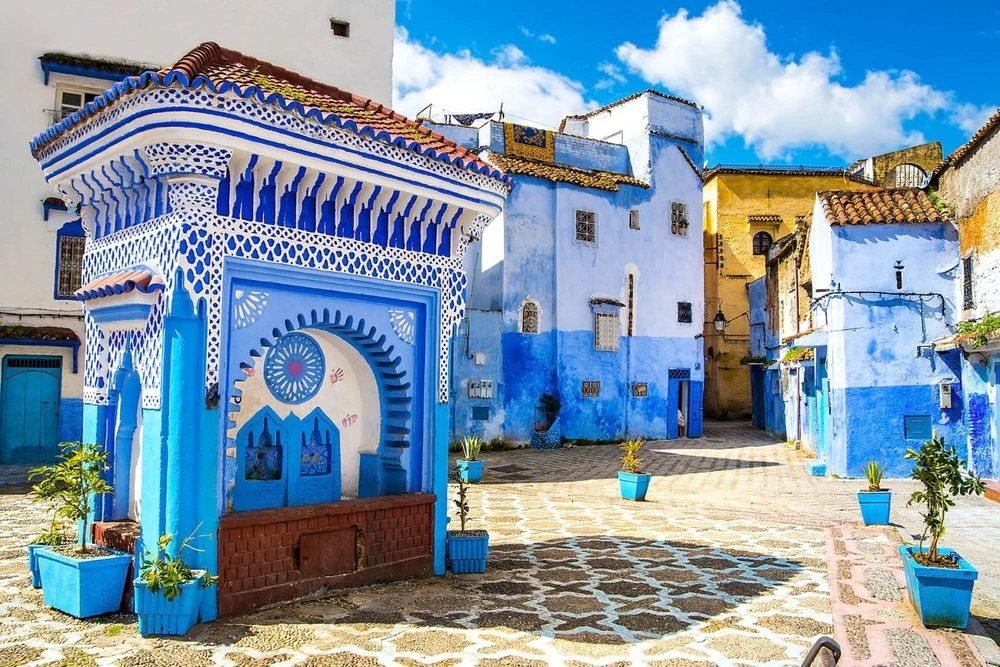
Some History First
Morocco’s rich history spans millennia, shaped by diverse civilizations:
- Indigenous Berber kingdoms (from 2000 BCE)
- Phoenician trading posts (800 BCE)
- Roman province of Mauretania Tingitana (40 CE)
- Arab-Islamic conquest and Idrisid dynasty (788 CE)
- Almoravid and Almohad empires (11th-13th centuries)
- Marinid, Wattasid, and Saadi dynasties (13th-16th centuries)
- Alaouite dynasty (1631-present)
- French and Spanish protectorates (1912-1956)
- Independence (1956)
Morocco Today
Modern Morocco is a constitutional monarchy blending tradition with progress. The country is known for:
- Thriving tourism industry
- Growing renewable energy sector
- Expanding infrastructure and urban development
- Rich cultural heritage preservation
- Emerging tech startups and innovation hubs
Is Morocco Safe?
Morocco is generally safe for tourists, with some precautions:
- Exercise standard travel safety practices
- Be aware of petty theft in crowded areas
- Respect local customs and dress modestly
- Use licensed guides and reputable tour operators
- Stay informed about current events and advisories
Where is Morocco?
Morocco is located in North Africa, bordering:
- Mediterranean Sea to the north
- Atlantic Ocean to the west
- Algeria to the east
- Western Sahara to the south
- Strait of Gibraltar, separating it from Spain by just 13 km
Latest Articles
From The Area
What is the Best Time to Visit Morocco?
Morocco’s diverse geography means varied climates:
- Spring (March to May) and Fall (September to November): Ideal temperatures for most regions
- Summer (June to August): Hot in cities and desert, but pleasant in coastal areas
- Winter (December to February): Cool and potentially rainy, but great for desert trips
- Ramadan: Dates vary yearly; many restaurants close during daylight hours
- Festivals: Plan around events like Fes Festival of World Sacred Music (June) or Marrakech International Film Festival (November/December)
How to Get to Morocco & Around
Navigate transportation options within Morocco efficiently:
- International Flights: Major airports in Casablanca, Marrakech, Rabat, and Fes
- Ferries: From Spain to Tangier or Ceuta
- Trains: Reliable network connecting major cities
- Buses: Extensive for reaching smaller towns
- Domestic flights: For longer distances
- Petit taxis: For in-city travel
- Grand taxis: For intercity travel
- Trams in Rabat and Casablanca
Things to Do in Morocco
Morocco offers a wealth of experiences that cater to every type of traveler. From exploring ancient medinas to trekking in the Atlas Mountains, the country is a treasure trove of adventures.
Where To Stay In Morocco
Morocco offers a diverse range of accommodations to suit every preference and budget. From traditional riads to luxury resorts, you’ll find unique places to stay throughout the country.
Popular accommodation options include:
- Marrakech: Luxurious riads in the medina, boutique hotels in Gueliz
- Fes: Traditional dars in Fes el-Bali, modern hotels in Ville Nouvelle
- Casablanca: Business hotels downtown, beachfront resorts
- Chefchaouen: Charming guesthouses in the blue city
- Atlas Mountains: Rustic kasbahs and eco-lodges
- Sahara Desert: Luxury desert camps, basic bivouacs
- Essaouira: Boutique riads, beachfront hotels
- Agadir: All-inclusive resorts, family-friendly hotels
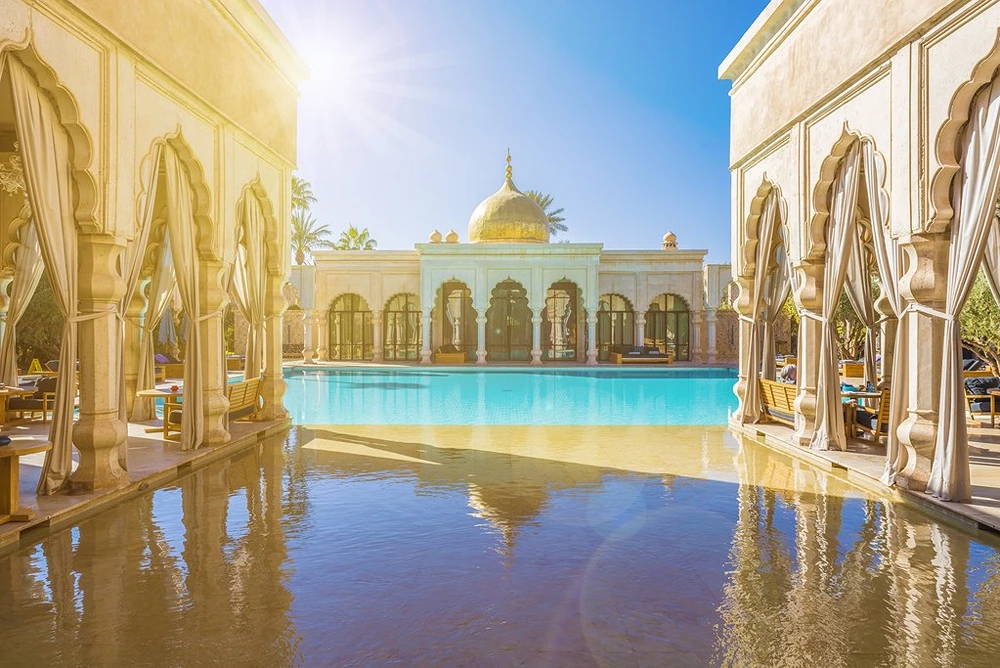
What To Eat In Morocco
Moroccan cuisine is a delightful fusion of Berber, Arabic, Andalusian, and Mediterranean flavors. Street food is abundant and delicious, while traditional restaurants offer a more refined dining experience.
Must-try Moroccan dishes include:
- Tagine: Slow-cooked stew named after the conical pot it’s cooked in
- Couscous: Typically served with vegetables and meat on Fridays
- Pastilla: Sweet and savory pie, traditionally made with pigeon
- Harira: Tomato-based soup often eaten during Ramadan
- Makouda: Deep-fried potato balls
- Mechoui: Slow-roasted lamb
- Bissara: Fava bean soup or dip
- Mint tea: The national drink, served throughout the day
- Msemen: Flaky, square-shaped pancake
- Chebakia: Sesame cookies shaped into flowers, often eaten during Ramadan
Entry & Exit Requirements
Navigating Morocco’s entry requirements is generally straightforward for most visitors, but it’s essential to check the most current information before travel.
Key points to remember:
- Most visitors can enter Morocco without a visa for stays up to 90 days
- Passport must be valid for at least 6 months beyond your planned stay
- Return ticket and proof of accommodation may be required
- Some nationalities do require a visa; check with the Moroccan embassy
- Overstaying can result in fines and possible detention
- No mandatory vaccinations, but routine vaccines should be up to date
- Declare large amounts of currency upon entry and exit
What To Pack For Your Trip
Packing for Morocco requires consideration of the climate, cultural norms, and your planned activities. The weather can vary significantly between regions and seasons.
Essential items to pack include:
- Lightweight, modest clothing that covers shoulders and knees
- Comfortable walking shoes for exploring medinas and archaeological sites
- Sun protection: hat, sunglasses, high-SPF sunscreen
- Light jacket or layers for cool evenings, especially in the mountains or desert
- Swimwear and beach essentials if visiting coastal areas
- Power adapter (Morocco uses Type C and E plugs, 220V)
- Basic medical kit including stomach remedies
- Reusable water bottle and water purification tablets
- Cash for small purchases and tipping (Moroccan dirhams)
- Scarf for women to cover hair when visiting mosques
- Modest, loose-fitting clothing for the hammam
- Arabic or French phrasebook
- Camera or smartphone for capturing memories
- Backpack or day bag for excursions
FAQs
Explore commonly asked questions about visiting Morocco:
Visa requirements vary by nationality. Many travelers can enter Morocco visa-free for up to 90 days. Check with Moroccan authorities for specific details.
It’s advisable to drink bottled or filtered water in Morocco to avoid potential health risks.
The currency used in Morocco is the Moroccan Dirham (MAD). Currency exchange services are widely available at airports, banks, and exchange offices.
The official languages of Morocco are Arabic and Berber. French is also widely spoken, especially in tourist areas. English is becoming more common, particularly in cities and tourist hotspots.


